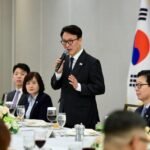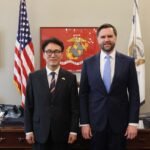Sometimes when I go abroad or talk to foreigners, there are a lot of people who try to teach me Korea as if it’s all true with information from social media or from the female-dominated Korean community. Of course, I know people who believe in it are arrogant and stupid, but it’s just so annoying. The qoo, pann, Twitter that you see are just crazy obsessed with celebrities. They don’t represent the Korean public. Especially, the qoo is a closed site that doesn’t accept users for years. And if you say you do that community in your daily life, everyone will look negative. They are no different from the male-dominated sites that they swear at. Rather, they have paranoid obsession with celebrities. Just accept celebrity information. Because they are the biggest consumers of popular culture and they have a huge influence on it. (But they’re not always right even from the perspective of Korean culture.) But don’t accept it in Korea as a whole. They are people who are intolerant and can’t have a neutral perspective.
Here’s a comment that got a lot of recommendations.
“I’m not too sorry. It’s a job that makes a lot of money thanks to crazy people like that. If the fans had normal intelligence, the entertainment industry would be ruined.”
submitted by /u/CountyElectronic97
[link] [comments]















